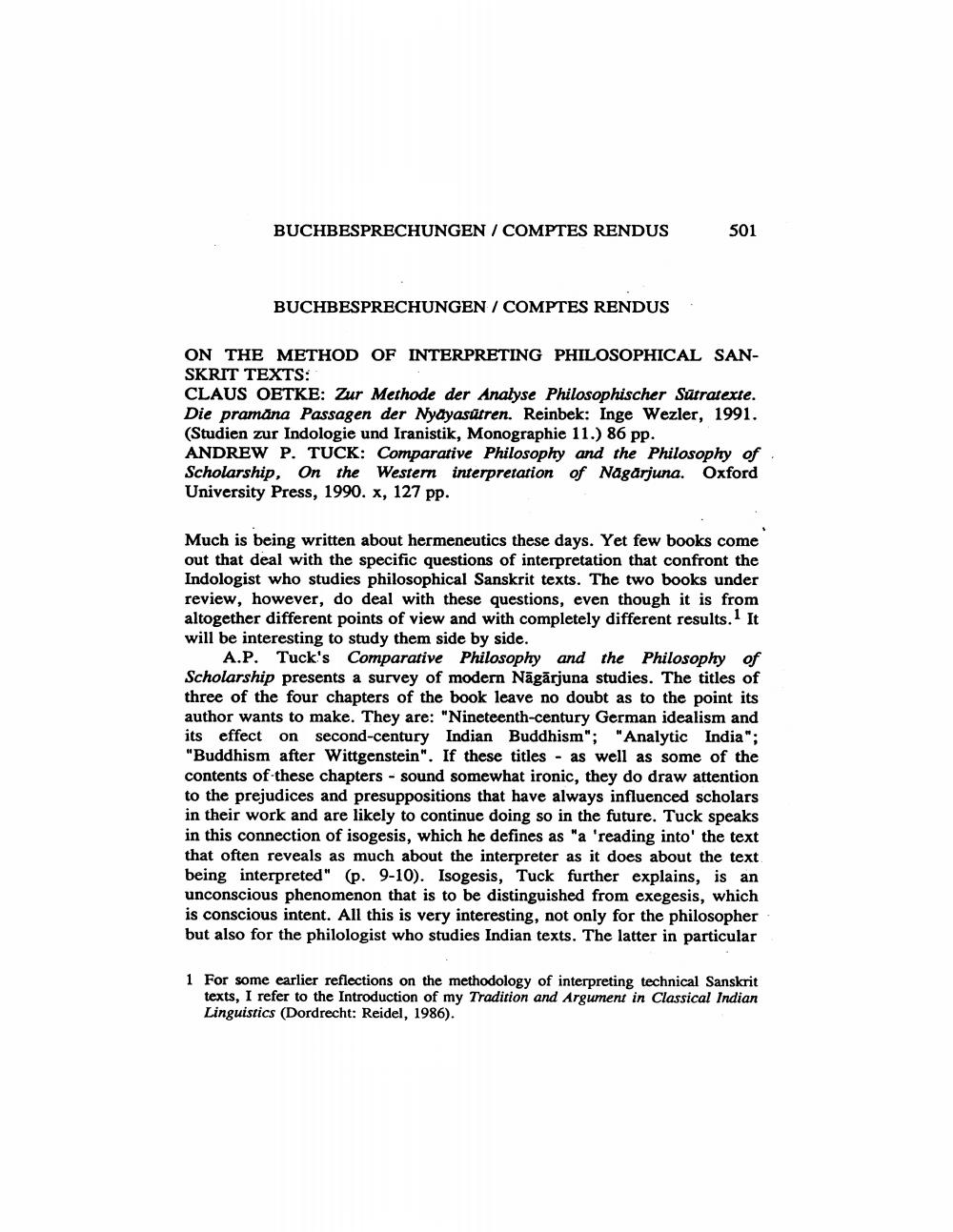________________
BUCHBESPRECHUNGEN / COMPTES RENDUS
501
BUCHBESPRECHUNGEN / COMPTES RENDUS
ON THE METHOD OF INTERPRETING PHILOSOPHICAL SANSKRIT TEXTS: CLAUS OETKE: Zur Methode der Analyse Philosophischer Sūtratexte. Die pramāna Passagen der Nyayasütren. Reinbek: Inge Wezler, 1991. (Studien zur Indologie und Iranistik, Monographie 11.) 86 pp. ANDREW P. TUCK: Comparative Philosophy and the Philosophy of Scholarship, On the Western interpretation of Nagarjuna. Oxford University Press, 1990. x, 127 pp.
Much is being written about hermeneutics these days. Yet few books come out that deal with the specific questions of interpretation that confront the Indologist who studies philosophical Sanskrit texts. The two books under review, however, do deal with these questions, even though it is from altogether different points of view and with completely different results. It will be interesting to study them side by side
A.P. Tuck's Comparative Philosophy and the Philosophy of Scholarship presents a survey of modern Nāgārjuna studies. The titles of three of the four chapters of the book leave no doubt as to the point its author wants to make. They are: "Nineteenth-century German idealism and its effect on second-century Indian Buddhism"; "Analytic India"; "Buddhism after Wittgenstein". If these titles - as well as some of the contents of these chapters - sound somewhat ironic, they do draw attention to the prejudices and presuppositions that have always influenced scholars in their work and are likely to continue doing so in the future. Tuck speaks in this connection of isogesis, which he defines as "a 'reading into the text that often reveals as much about the interpreter as it does about the text being interpreted" (p. 9-10). Isogesis, Tuck further explains, is an unconscious phenomenon that is to be distinguished from exegesis, which is conscious intent. All this is very interesting, not only for the philosopher but also for the philologist who studies Indian texts. The latter in particular
1 For some earlier reflections on the methodology of interpreting technical Sanskrit
texts, I refer to the Introduction of my Tradition and Argument in Classical Indian Linguistics (Dordrecht: Reidel, 1986).




